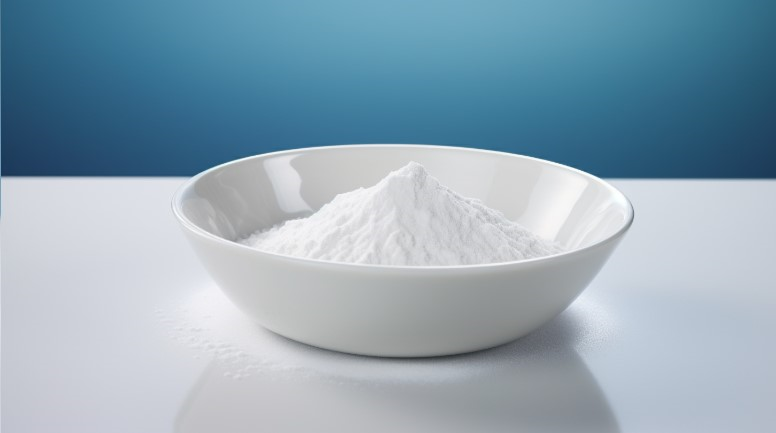Эффективность и побочные эффекты инозитола

What is inositol
Inositol, chemically identified as a cyclohexane with six hydroxyl groups, was first isolated from muscle extract by Scheele in 1850 and named inositol.
Inositol refers to a family of nine stereoisomers, Myo-, d-chiro-, l-chiro-, muco-, scyllo-, and neo- are naturally occurring isomers, while allo-, cis -, and epi- are synthetic compounds.
Among them, the most representative ones in human body are inositol and D-cycloinositol, which are the most commonly used inositol in clinic.
Inositol can be obtained from the diet, as it is mainly found in corn, nuts, and fruits, as well as from D-glucose synthesis in various tissues in the body, including the brain, liver, kidneys, mammary glands, and testicles.
Inositol exists widely in all eukaryotes and is involved in a large number of biological processes. Because of this, inositol was once considered a member of the B vitamin group, but because it can be synthesized by the body, it cannot be considered a “true” essential nutrient. However, whether this biosynthesis can provide enough healthy amounts from glucose is still controversial.
What are the empirical effects of inositol
Lower body mass index
Body Mass index is a statistical index that uses a person’s weight and height to estimate the body fat of men and women of any age by dividing a person’s weight in kilograms by their height squared in meters.
The National Institutes of Health (NIH) now uses BMI to define underweight, normal weight, overweight or obese instead of the traditional height-weight chart.
In clinical practice, being overweight (BMI greater than or equal to 25 kg/m2) or abdominal obesity (waist circumference greater than or equal to 88 cm in women or 102 cm in men) is associated with an increased overall risk status for obesity-related comorbidities.
A systematic review and meta-analysis (15 randomized controlled trials with a total of 891 participants) showed that inositol supplementation significantly reduced body mass index scores.
Subgroup analyses showed that the associated effects of healthy body mass index were in overweight and obese individuals, in the form of myo-inositol, with intervention duration of less than 12 weeks and dose. 1000 mg, age > The 40-year-old subjects with polycystic ovarian syndrome were more significant.
Inositol may have a positive effect on reducing body mass index, but due to the small sample size and high heterogeneity between studies, more studies are needed to further verify.
Beneficial blood pressure regulation
Global Burden of disease studies show that high blood pressure is the single largest risk factor contributing to the global burden of disease.
Age, excessive sodium intake, insufficient dietary potassium intake, overweight and obesity, alcohol consumption, genetic predisposition, and physical inactivity are all associated with the development of high blood pressure.
A literature review and meta-analysis (7 randomized controlled trials with 322 participants) showed that inositol significantly reduced systolic and diastolic blood pressure levels.
Subgroup analysis showed that the associated blood pressure lowering effect was longer in patients with metabolic syndrome (> 8 weeks), the dose of 4000 mg subjects were more significant.
Inositol may have a positive effect on blood pressure regulation, but due to the small sample size and possible interfering factors, more studies are needed to further verify.
Beneficial for retinopathy of prematurity
Retinopathy of prematurity was known as omental fibroplasia in the 1940s. It is defined as a progressive disease that appears only in premature infants with low birth weight and is characterized by the formation of fibrous tissue behind the lens, leading to blindness and severe visual impairment.
Retinopathy of prematurity may be a window into the development of premature babies after birth. It often occurs in conjunction with other neonatal disorders, such as neurological dysfunction, brain dysplasia, necrotizing enterocolitis, ventricular hemorrhage, and bronchopulmonary dysplasia, and is associated with other eye problems, including an increased risk of myopia and strabismus.
A review and meta-analysis of six randomized controlled clinical trials involving 1194 preterm infants found that inositol supplementation had no significant effect on the incidence, mortality, all stages of the disease, or other adverse events in preterm infants compared with placebo.
In addition, after removing an earlier study, sensitivity analysis showed an increase in mortality in the inositol group (especially in preterm infants younger than 32 weeks).
Beneficial polycystic ovarian syndrome
Polycystic ovarian syndrome (PCOS) is a common hormonal disorder in women of reproductive age, with a prevalence rate of about 7%. It is often associated with abnormal increase of androgen and abnormal secretion of gonadotropin, as well as irregular menstruation, hirsutism, abnormal ovulation and hair loss.
In addition to the symptoms related to the reproductive system, another important feature of PCOS is the abnormal function of islet beta cells and insulin, which increases the incidence of type 2 diabetes.
A meta-analysis of the literature (9 randomized controlled trials with nearly 500 participants) indicated that the use of inositol (in either Myo-inositol or d-chiro-inositol form) was associated with improved metabolic markers such as steady-state pattern assessment and fasting blood insulin. And increase sex hormone binding globulin (SHBG), reduce androgen excess.
Oral inositol may have a positive effect on polycystic ovarian syndrome, but due to the high heterogeneity among studies, more empirical confirmation is needed.
Beneficial gestational diabetes
Gestational diabetes mellitus is mainly defined as pregnancy-related glucose intolerance events, the prevalence of which is about 2% to 5%. The main risk factors are familial tendency, age, obesity, history of spontaneous abortion, polycystic ovary syndrome, essential hypertension, etc.
The reason why the prevention of gestational diabetes is important is that high blood sugar during pregnancy is often associated with fetal malformation, which not only increases the chance of megalopolis and birth defects, but also increases the risk of obesity and diabetes later in life.
A Meta-Analysis of the literature (five studies with 513 participants) indicated that inositol supplementation reduced the risk of gestational diabetes in pregnant women and reduced adverse pregnancy events such as respiratory distress syndrome, shoulder dystocia, neonatal hypoglycemia, macrosomia, hyperamniotic fluid, and preterm birth (but some items were not statistically significant).
Oral inositol can reduce the incidence of gestational diabetes mellitus and related complications, but due to the number of studies, more large-scale trials are needed to confirm.
Beneficial for PMDD
PMDD is a more severe form of PMS, the main symptoms are low mood, anxiety, mood swings, decreased interest in activities, and seriously affect the family, social and occupational areas.
In terms of prevalence and duration of symptoms, the burden of disease caused by PMDD is comparable to that of other common mental disorders (such as depression or anxiety).
A 6 month randomized, double-blind, controlled study of 90 patients with PMDD showed that inositol improved symptoms of irritability and depression associated with premenstrual discomfort (as measured by DSR, HAM-D, and CGI-SI scales).
Preliminary studies have found that oral inositol has a positive effect on PMDD, but the results need to be further verified in larger studies.
Beneficial for respiratory distress syndrome
Neonatal respiratory distress syndrome is mainly caused by insufficient pulmonary surface active substances, which are necessary to reduce alveolar surface tension and maintain alveolar stability. Deficiency can lead to respiratory disorders and multiple complications, and is one of the main causes of increased neonatal mortality, with an incidence of between 6% and 7%, especially in premature infants born before 28 weeks.
A meta-analysis of the literature (4 vs. randomized controlled trials) showed that inositol reduced adverse outcomes associated with respiratory distress syndrome in preterm newborns (e.g., neonatal or infant mortality, intraventral hemorrhage score greater than 2, and retinopathy of prematurity score greater than 3).
The use of inositol can reduce the possible adverse complications in premature newborns, but due to the small sample size, more studies are needed to verify.
Does inositol have side effects
Inositol is a relatively safe ingredient for most people, but side effects have been reported including nausea, fatigue, headache, dizziness, diarrhea, flatulence, difficulty sleeping… Part of the reason is related to the use of high doses (12g or more per day).
Safety precautions (4 points taboo)
1. For pregnant or pregnant women, please consult a doctor or pharmacist before using
2. Patients with diabetes or taking hypoglycemic drugs should be careful to use, because inositol may have a hypoglycemic effect, please monitor the blood glucose level regularly
3. Patients with high blood pressure or taking blood pressure lowering drugs should use caution, because inositol may have a blood pressure lowering effect, please monitor blood pressure regularly
4. Do not use lactating women or patients with poor liver and kidney function (because the related safety is unknown)
ссылка
1. Inositol supplementation and body mass index: A systematic review and meta-analysis of randomized clinical trials
2. Gestational Diabetes Mellitus
3. Myo-inositol effects in women with PCOS: a meta-analysis of randomized controlled trials
4. Premenstrual Dysphoric Disorder: Epidemiology and Treatment
5. Myo-inositol in the treatment of premenstrual dysphoric disorder
6. Inositol for respiratory distress syndrome in preterm infants
Inositol Manufacturer /Inositol Manufacturers/Inositol Supplier /Inositol Suppliers/Inositol Factory:
www.backvita.com
Электронная почта: [email protected]
Телефон: +86 (029) 8187 2325



